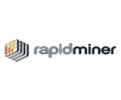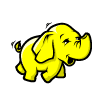Ignite Your Data-Driven Future
Join Our Data Science Course To Get The Ideal Start
Learn the skills to become a data scientist. Our comprehensive Data Science course covers data collection, analysis, and visualization techniques. Gain valuable experience in statistical modeling and machine learning. Boost your career prospects in the high-demand field of data science.
- 4 Months Live Training
- Monthly EMI Facility
- Certified Internship
- 100% Placement Assistance
New Batch Starting: August First Week
About Data Science Course
What You Will Learn?
In a data science course, you will learn a variety of concepts, techniques, and skills that are essential for working with and analyzing data.
You will learn key concepts such as statistics and probability, Python programming, data manipulation and cleaning, data visualization, machine learning algorithms, exploratory data analysis, data modelling and evaluation, big data processing, ethical considerations, and effective communication of data insights.
Data Science Course Curriculum
- Introduction of data science
- Data Science life cycle
- Tools of data science
- Introduction to Python
- Introduction to Machine Learning
- Introduction to Python Programming
- Installation
- Basic operation
- Variable assignment
- Functions in python
- Condition and loops
- Data structure
- Array, Object, Exception handling
- File handling
- Introduction of NumPy and pandas in Libraries in python
- Installation of Pandas and NumPy libraries
- Data visualization libraries like (MATPOTLIB and SEABORN)
- Introduction to Power BI
- Introduction to SQL
- Fundamentals of Structured Query Language
- SQL Tables, Joins, Variables
- SQL Functions, Subqueries, Rules, Views
- Nested Queries, string functions, pattern matching
- Mathematical functions, Date-time functions, etc.
- Introduction of Statistics
Statistical Function like (Mean , Median , Mode) - Measure of central tendency, measure of spread, five points summary
- EDA parts (Data Wrangling)
- Correlation Matrix
- Normal Distribution , Skewness , bell curve
- Probability Distributions, bayes theorem, central limit theorem
- Introduction to Machine Learning and categories
- Data Preprocessing
- Data Preparation
- Machine Learning types and algorithms
- Introduction Parameter in Machine Learning and PCA
- Introduction on Github and Kaggle
- Implementation of case study
- Git Lifecycle, Git commands, Working with branches
- Github collaboration (pull request), Github Authentication (SSH and HTTP)
- Merging branches, Resolving merge conflicts, Git workflow
- Recommendation Engine
- Housing & Census
- Object Detection
- Stock Market Analysis
- AI Chatbot
Technologies Covered in Data Science Course









Who can learn Data Science & Data Analytics?
- IT Professionals to enhance their skills.
- Business analysts can leverage data science techniques to extract insights.
- Data analysts can expand their skills by learning data science.
- Professionals involved in research across various domains.
- Marketing Professionals to analyze customer behaviour.
- Entrepreneurs can gain a competitive advantage by learning data science.
Why choose Softspace Solutions?
- Learn practical coding through real-time projects.
- Live classes with all session recordings.
- Robust curriculum to help you groom better.
- Get mentored by industry veterans.
- 1:1 mentorship for your personalized grooming.
- Progress tracking and internal tests to polish your skills.
- Career support via dedicated recruitment network.
- Mock interviews to get your ready for the live scenario.
Salaries Offered By Top Companies
| Experience Level | Data Scientist Salary | Data Analyst Salary |
|---|---|---|
| Entry Level | ₹5 Lakhs/annum | ₹3.4 Lakhs/annum |
| 1-4 Years Expereince | ₹5-6 Lakhs/annum | ₹4.22 Lakhs/annum |
| 5-9 Years Experience | ₹10 Lakhs/annum | ₹6.9 Lakhs/annum |
Career Opportunities After Completing Data Science Course
Data Analyst
Data Scientist
Business Intelligence Analyst
Machine Learning Engineer
Data Engineer
Data Visualization Specialist
Quantitative Analyst
Data Consultant
Data Product Manager

Why Choose Data Analyst / Data Science Course?
- Data analysis and data science skills are highly sought after in today's job market.
- Data analysts and data scientists often enjoy competitive salaries due to the high demand.
- Companies need Data-Driven Decision Making.
- Solving complex problems with intellectual expertise.
- You can create an impact across industries with your profile.
Variety of Projects Covered in Data Science Course
Projects in predictive modeling involve building and evaluating machine learning models to make predictions or classifications. Students may work on tasks such as predicting customer churn, forecasting sales, or classifying sentiment in text data.
Your Instructors
Data Science Course FAQs
You will definitely have some doubts about the course and career in data science. Here we have answered some most prominent questions related to the Data Science course.
While not mandatory, a solid foundation in mathematics, statistics, and programming can be helpful. Strong analytical thinking, problem-solving abilities, and a curiosity to explore and analyze data are also important.
Data science courses usually cover topics such as data analysis, statistical modelling, machine learning, data visualization, data wrangling, and programming languages commonly used in data science like Python or R.
Prerequisites can vary depending on the course, but some courses may require a basic understanding of statistics and programming concepts. It’s advisable to check the specific prerequisites mentioned by the course provider.
The duration of data science courses can vary. It can range from a few weeks for introductory courses to several months or even a year for comprehensive programs. It depends on the depth and breadth of the course content.
While both fields involve working with data, data science focuses on extracting insights, building predictive models, and developing algorithms, whereas data analytics primarily focuses on exploring and interpreting data to support decision-making.
Consider factors such as your current skill level, career goals, course content, instructor expertise, hands-on exercises or projects, and student reviews. Research different course options to find the one that aligns with your learning objectives and interests.



